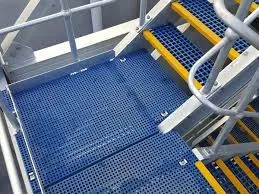
-
 Afrikaans
Afrikaans -
 Albanian
Albanian -
 Amharic
Amharic -
 Arabic
Arabic -
 Armenian
Armenian -
 Azerbaijani
Azerbaijani -
 Basque
Basque -
 Belarusian
Belarusian -
 Bengali
Bengali -
 Bosnian
Bosnian -
 Bulgarian
Bulgarian -
 Catalan
Catalan -
 Cebuano
Cebuano -
 China
China -
 China (Taiwan)
China (Taiwan) -
 Corsican
Corsican -
 Croatian
Croatian -
 Czech
Czech -
 Danish
Danish -
 Dutch
Dutch -
 English
English -
 Esperanto
Esperanto -
 Estonian
Estonian -
 Finnish
Finnish -
 French
French -
 Frisian
Frisian -
 Galician
Galician -
 Georgian
Georgian -
 German
German -
 Greek
Greek -
 Gujarati
Gujarati -
 Haitian Creole
Haitian Creole -
 hausa
hausa -
 hawaiian
hawaiian -
 Hebrew
Hebrew -
 Hindi
Hindi -
 Miao
Miao -
 Hungarian
Hungarian -
 Icelandic
Icelandic -
 igbo
igbo -
 Indonesian
Indonesian -
 irish
irish -
 Italian
Italian -
 Japanese
Japanese -
 Javanese
Javanese -
 Kannada
Kannada -
 kazakh
kazakh -
 Khmer
Khmer -
 Rwandese
Rwandese -
 Korean
Korean -
 Kurdish
Kurdish -
 Kyrgyz
Kyrgyz -
 Lao
Lao -
 Latin
Latin -
 Latvian
Latvian -
 Lithuanian
Lithuanian -
 Luxembourgish
Luxembourgish -
 Macedonian
Macedonian -
 Malgashi
Malgashi -
 Malay
Malay -
 Malayalam
Malayalam -
 Maltese
Maltese -
 Maori
Maori -
 Marathi
Marathi -
 Mongolian
Mongolian -
 Myanmar
Myanmar -
 Nepali
Nepali -
 Norwegian
Norwegian -
 Norwegian
Norwegian -
 Occitan
Occitan -
 Pashto
Pashto -
 Persian
Persian -
 Polish
Polish -
 Portuguese
Portuguese -
 Punjabi
Punjabi -
 Romanian
Romanian -
 Russian
Russian -
 Samoan
Samoan -
 Scottish Gaelic
Scottish Gaelic -
 Serbian
Serbian -
 Sesotho
Sesotho -
 Shona
Shona -
 Sindhi
Sindhi -
 Sinhala
Sinhala -
 Slovak
Slovak -
 Slovenian
Slovenian -
 Somali
Somali -
 Spanish
Spanish -
 Sundanese
Sundanese -
 Swahili
Swahili -
 Swedish
Swedish -
 Tagalog
Tagalog -
 Tajik
Tajik -
 Tamil
Tamil -
 Tatar
Tatar -
 Telugu
Telugu -
 Thai
Thai -
 Turkish
Turkish -
 Turkmen
Turkmen -
 Ukrainian
Ukrainian -
 Urdu
Urdu -
 Uighur
Uighur -
 Uzbek
Uzbek -
 Vietnamese
Vietnamese -
 Welsh
Welsh -
 Bantu
Bantu -
 Yiddish
Yiddish -
 Yoruba
Yoruba -
 Zulu
Zulu
Exploring the Benefits and Applications of FRP Weirs in Water Management Systems
Understanding FRP Weirs A Comprehensive Overview
Fiber Reinforced Polymer (FRP) weirs are gaining prominence in modern hydraulic engineering and water management systems. These structures, made from composite materials, offer a range of benefits over traditional weir designs, making them an attractive option for various applications. In this article, we will delve into the characteristics, advantages, applications, and challenges associated with FRP weirs.
What is an FRP Weir?
A weir is a barrier across an open channel that alters the flow characteristics of water. Generally used for measuring flow, regulating water levels, or controlling sediment transport, weirs can be constructed from various materials. FRP weirs specifically utilize fiber-reinforced polymers, which combine plastic with fibers such as glass or carbon to enhance strength and durability. This composite material allows for lightweight structures that maintain robust performance under various environmental conditions.
Advantages of FRP Weirs
1. Corrosion Resistance One of the most significant advantages of FRP weirs is their resistance to corrosion. Unlike traditional materials, such as concrete or steel, FRP is impervious to chemical attacks from waterborne pollutants, ensuring longevity and reducing maintenance costs.
2. Lightweight The lightweight nature of FRP makes installation more manageable and cost-effective. This aspect is particularly beneficial in locations where heavy equipment cannot easily access the site, as transporting and positioning these weirs can be done more efficiently.
3. Cost-Effectiveness While the initial investment in FRP materials may be higher than conventional options, the long-term savings on maintenance and replacement can make it more economical over time. The durability and low upkeep can offset the upfront costs significantly.
4. Customization and Versatility FRP weirs can be manufactured in various shapes and sizes to fit specific requirements. Their adaptability allows engineers to design weirs that can accommodate unique site conditions, flow requirements, and aesthetic preferences.
5. Sustainability Many FRP products are designed to be environmentally friendly, with the potential for recycling at the end of their lifecycle. Using lightweight materials can also reduce the carbon footprint during transport and installation.
frp weir

Applications of FRP Weirs
FRP weirs are applicable across various sectors, including
- Water Resource Management Used to measure flow rates in rivers and streams, these weirs play a crucial role in hydrological studies and water allocation strategies. - Irrigation Systems In agricultural settings, FRP weirs can help manage water resources efficiently, ensuring crops receive adequate hydration while minimizing waste.
- Stormwater Management In urban areas, these weirs can control floodwater and manage stormwater runoff, helping to mitigate the risk of flooding.
- Industrial Applications Industries that require precise water measurement for process control and compliance can benefit from the reliability and accuracy of FRP weirs.
Challenges in Implementation
Despite their many advantages, there are challenges associated with the use of FRP weirs. One primary concern is the initial cost of materials, which can be higher compared to traditional options. Additionally, manufacturers and engineers must ensure that the weirs are adequately designed to handle local conditions, such as extreme weather or unusual flow patterns.
Lastly, the long-term exposure to ultraviolet (UV) radiation can degrade non-treated FRP materials. Therefore, it is essential to apply protective coatings or select UV-resistant versions of FRP to ensure longevity.
Conclusion
FRP weirs represent a significant advancement in water management technology, offering numerous benefits that enhance their appeal for various applications. With their lightweight properties, corrosion resistance, and customization capabilities, FRP weirs are becoming a preferred choice for engineers and water resource managers alike. Despite some challenges, the long-term advantages make them a worthy consideration in modern hydraulic engineering projects. As technology continues to evolve, FRP weirs are poised to play an increasingly important role in sustainable water management solutions.









